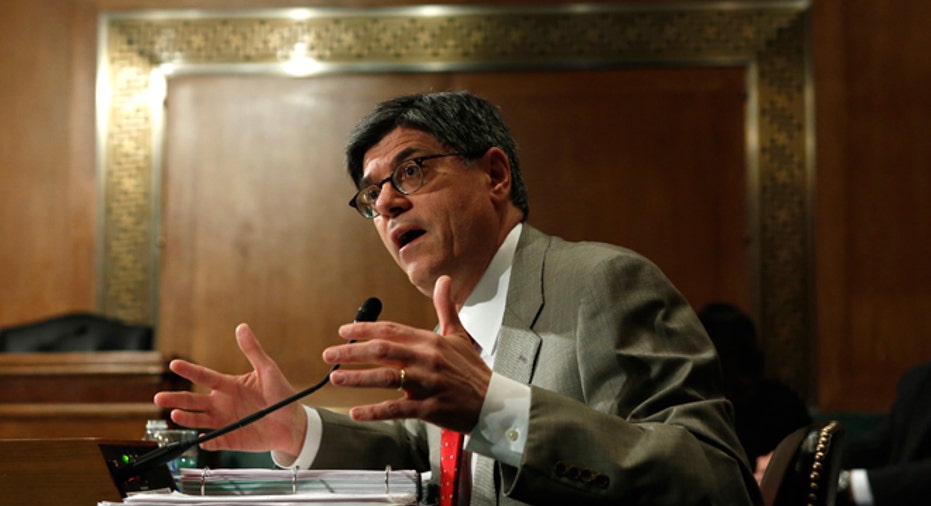Treasury Developing Options to Curb Inversions

The Treasury Department is preparing options for use by Secretary Jacob Lew in the Obama administration’s effort to stem the tide of U.S. companies seeking to relocate overseas to avoid paying U.S. taxes, a strategic tactic known as an “inversion.”
A Treasury official told FOX Business that the issues are “complex” and the recommendations will not be ready in the span of a couple of weeks. Still, the secretary hopes to have the recommendations from his team in the near future.
“Time is of the essence and we cannot wait months and years for Congress to act while inversions erode our corporate tax base,” the official said.
President Barack Obama took direct aim at the tactic in a speech last month, urging Congress to pass tax reforms that would eliminate loopholes that allow U.S. companies to shield large portions of their profits overseas through inversions.
Obama’s public remarks significantly raised the profile of an effort that gained momentum in July with a letter from Lew to Congressional leaders in which Lew said inversions “hollow out the U.S. corporate income tax base.”
The president made a broad call for “economic patriotism,” suggesting that companies that pursue inversions are essentially renouncing their U.S. citizenship in an effort to reduce their corporate tax burdens.
But after waiting several weeks for Congress to move, the White House recently announced it would consider taking interim steps on its own.
Tax experts have varying views on what steps the Obama administration could take. Some believe the White House’s powers are relatively limited, given how Congress has already tried to address inversions through law, the Wall Street Journal reported.
But others believe the White House has ample flexibility to step in and have raised a number of different ideas for administrative actions, including steps to address earnings stripping, the taxation of interest, and the treatment of debt and equity,
Administration officials have said inversions hurt middle-class Americans who have to pick up the slack when corporations use sophisticated loopholes to shirk their tax responsibilities.
Inversions -- and the U.S. corporate tax code -- have come under a higher level of scrutiny since giant U.S. drug maker Pfizer (NYSE:PFE) announced earlier this year that it planned to merge with London-based AstraZeneca (NYSE:AZN), a move that would have saved it billions in U.S. taxes.
The deal fell apart but the issues it raised haven’t gone away.
Relocating their legal addresses outside the U.S. for tax purposes is hardly a new phenomenon for companies, but Pfizer was by far the largest and most high-profile company to ever attempt the move.
Through an inversion Pfizer was seeking to reduce its U.S. corporate tax rate of 35% to the much lower 21% in England.
The companies that seek inversions say the comparatively-high U.S. corporate tax rate leaves them at a competitive disadvantage to their overseas competitors. Paying a lower tax rate, they say, helps the company reinvest in itself and ultimately benefits shareholders.
Tax experts estimate there have been about 50 inversions by U.S. companies over the past few decades, with the pace picking up considerably in recent years.
Earlier this year, the Obama administration tucked a measure into a budget bill that would have made the relocation process more difficult for U.S. companies, but the measure never got off the ground in Congress.
Obama is now urging Congress to pass the legislation retroactive to May, arguing that will stop companies from rushing into deals to avoid the law. Republicans in Congress, however, have supported broad tax reform that would eliminate loopholes and lower corporate tax rates in an effort to reduce the incentive for companies to relocate in countries with lower tax rates than the U.S.
Under current law, shareholders of a U.S. company that merged with an offshore entity would have to own less than 80% of the combined entity to take advantage of a lower foreign tax rate. Obama's budget proposes slashing that cutoff to 50%.
Administration officials estimate the deals, if allowed to continue, will cost the U.S. Treasury $17 billion in lost revenue over the next decade.



















